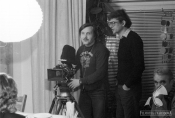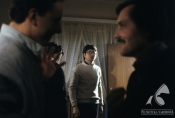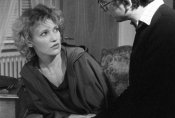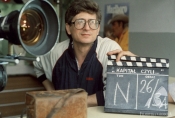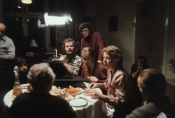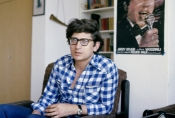Feliks Falk
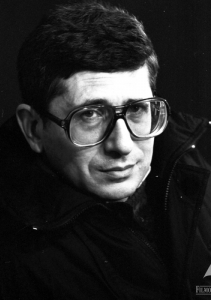
Film, theatre and television director, screenwriter, playwright, producer and educator. He was born on February 25, 1941 in Stanisławów. He graduated from the Faculty of Painting and Graphic Design of the Academy of Fine Arts (1966) and the Directing Department of the State School of Film, Television and Theatre in Łódź (1974). He was a graphic designer of the monthly "Magazyn Polski". Author of numerous theatre and television plays and radio shows, as well as screenplays adapted for screen by other directors, including Wielki bieg/Great Run (1981) by Jerzy Domaradzki or Baryton/Baritone (1984) by Janusz Zaorski. As a director and writer, he made his debut in 1973 with the short television film Nocleg/Overnight; two years later he completed a full-length feature film W środku lata/In the Middle of Summer, an in-depth psychological drama about the life of a couple who have been married for several years; the film received an honorary mention at the Auteur Film Festival in San Remo (1976).
Along with Agnieszka Holland, Krzysztof Kieślowski and Janusz Kijowski, Feliks Falk is one of the leading representatives of the cinema of moral anxiety. One of the flagship titles of this trend is his Wodzirej/Top Dog (1977 Golden Grape award in Łagów), starring the iconic Jerzy Stuhr in the title role; it is a striking story about a provincial entertainer who is unscrupulous in his climb up the local career ladder, gaining popularity and success whilst losing respect and dignity (the director returned to the character nine years later, in Bohater roku/Hero of the Year, awarded in Moscow and Gdańsk). He was no less critical of the surrounding reality in his Szansa/Opportunity (1979), a story of the rivalry between two high school teachers representing radically different views of education. A quarter of a century later, Falk returned to the formula of socially engaged theatre in his excellent Komornik/The Collector (2005, Golden Lion, award for Andrzej Chyra for best leading male role and Kinga Preis for best supporting actress, as well as for Bartosz Prokopowicz for cinematography and Grzegorz Łoszewski for best screenplay), which tells the story of two days in the life of a bailiff who is very strictly, albeit according to the letter of the law, collecting outstanding debts. Earlier, in 1993, he completed an equally uncompromising film Samowolka/AWOL, devoted to the dark side of military service.
In some of his films he returns to the past: in Joanna (2010, awards in Los Angeles, Moscow and Gdynia) he tells the poignant story of a Jewish girl during the Nazi occupation who is hidden by a young woman and becomes an object of interest of a German officer; Był jazz/There Was Jazz (1981), set in the “catacomb” era of jazz in Poland (the early 1950s), when that kind of music was banned as a typical manifestation of American rot; in Idol (1984), the story of a rebellious writer undoubtedly inspired by Marek Hłasko, and in the thriller Enen (2009), set during the great flood of 1997. One film of Falk’s is unusual, inspired not by reality, but by great literature, namely Lato miłości/Summer of Love (1994), based on the short story Nathalie by Ivan Bunin.
Feliks Falk is a lecturer at the Łódź Film School, the Head of the School of Screenwriting, as well as co-owner and head of Fokus Film Studio.
He was awarded the Officer's Cross of the Order of Polonia Restituta (2011).
Jerzy Armata
